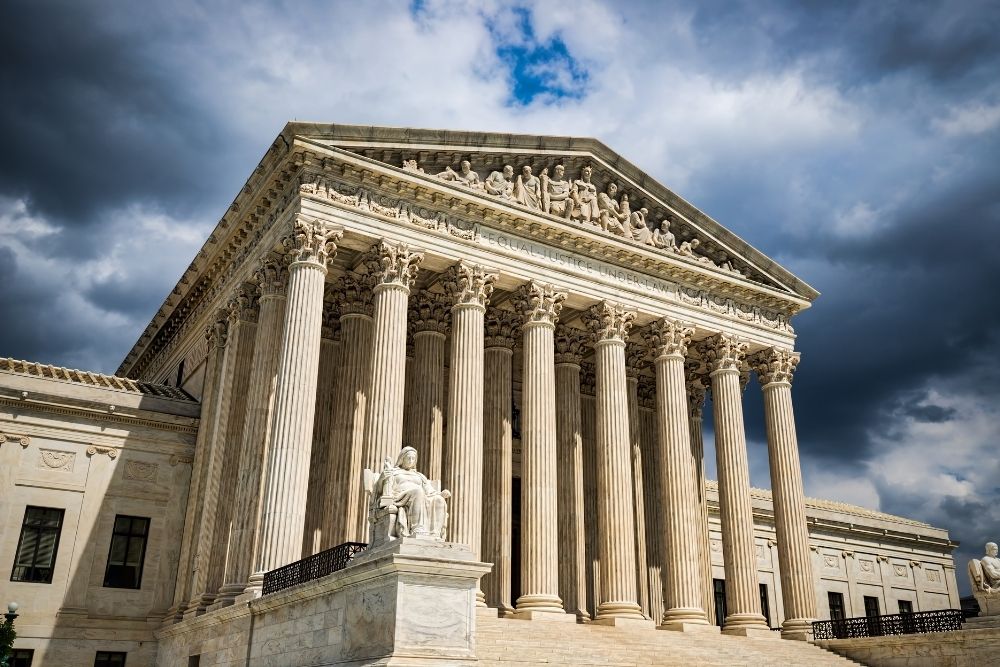- Home
- THE FIRM+
- Criminal Defense+
- CASE RESULTS
- AREAS WE SERVE+
- FAQ’s
- Blog
- Contact
AZHARI LLC BLOG

Posted By: Sami Azhari
Category:
Domestic violence is something taken seriously by the state of Illinois – as well as the federal government. That’s why sometimes you may perpetrate an act of domestic violence in the state but find yourself facing charges in federal court.
Why does this happen? Here’s what you need to know about domestic violence laws in Illinois and how domestic violence can turn into a matter handled by the federal courts.
What Is Domestic Violence in Illinois?
For a crime committed by someone in the state to be considered a crime of domestic violence, the act must be committed against a person who is a family or household member of the accused. This includes anyone you are:
- Currently or have formerly been married to
- Anyone you share a child with
- Anyone you currently or have lived with
- Anyone you’re dating or engaged to
- Anyone related to you by marriage or blood
- Those with disabilities and their caregivers
What Does the Federal Government Consider Domestic Violence?
The federal government enacted the Violence Against Women Act in 1994. Its purpose was to help local justice systems to deal with issues related to domestic violence.
Under federal law, the following acts are considered a crime of domestic violence:
- Traveling between states with the intention of harassing, intimidating, or injuring someone who falls under the definition of an intimate partner – and in the course of that travel inflicts bodily injury on the victim.
- Causing someone who is an intimate partner to cross state lines by coercion, fraud, force, or duress, during which bodily harm is done to the victim.
So, if you travel to another state and have the intention of committing domestic violence as well as bodily injury – or cause someone to cross state lines under these circumstances – then you can be charged in federal court with domestic violence.
On top of that, you cannot:
- Harass or stalk someone by computer or mail
- Cross state lines with the intent to violate a protective order if one is in place
- Cause someone to cross state lines to violate a protective order
These are also federal crimes.
Domestic Violence and Guns
Under federal law, it’s illegal to possess ammunition or a firearm while under an order of protection. You cannot possess ammunition or a firearm if you’ve been convicted in federal court of a qualifying misdemeanor of domestic violence. If you break this federal law, then you may be ordered to pay restitution.
Federal Penalties for Domestic Violence
In federal court, all domestic violence crimes are considered felonies, so the penalties can be quite severe. You may be imprisoned for up to five years if found guilty of domestic violence in federal court.
However, if there was serious bodily injury inflicted on the victim, or a dangerous weapon was used in the commission of the crime, then you can face up to 10 years imprisonment. The penalty can be increased to 20 years if the victim suffers an injury that permanently disfigures them.
Restraining Orders
In federal domestic violence cases, you can have a restraining order granted and enforced against you. If the crime meets the federal definition of domestic violence – and the person named as the respondent in the order was given appropriate notice to be heard in court – then the state must enforce the order.
Domestic violence is a serious matter no matter if you are charged in federal or state court.
About the Author
Sami Azhari has been working as a lawyer since 2007, after receiving his Juris Doctor from the Michigan State University College of Law. He has handled numerous state and federal cases, and is known throughout the Chicago and Rolling Meadows area for providing his clients with high-quality, skilled representation. He has been recognized by Avvo (2013 and 2018), SuperLawyers (2015-2020), The National Trial Lawyers, and other notable organizations, and has spoken at a number of legal conferences.


























































